20 part 1: Data at the Forefront: The Strategic Impact of Parcel Spend Management
In Part 1 of this 2-part miniseries, our co-hosts, Jason Rowland and Nick Agnetti sit down with Mike McComb, Executive Vice President, Commercial Development at Green Mountain LIVE from PARCEL Forum '25. Mike opens the discussion with how data-driven Parcel Spend Management transforms shipping. From ship-from-store strategies to smarter packaging, learn how large shippers cut costs, speed up delivery, and boost customer experience—all while building stronger carrier partnerships.
Learn more about this topic:
Mike McComb | LinkedIn
With over 20 years of experience in logistics sales, Mike McComb is passionate about building successful teams and delivering great customer experiences. As the Executive Vice President, Commercial Development, at Green Mountain, Mike lead sales, marketing, sales operations, and demand generation teams in collaborating with large North American enterprises to optimize shipping, maximize profitability, deliver on their customer promises and create ultimate business support.
His core competencies include supply chain solutions, parcel spend management, sustainable logistics, freight forwarding, small package, multi-modal international transportation, warehousing, fulfillment design, sustainable packaging, SaaS, WMS deployment, e-commerce platform consultancy, and CRM development. Mike has created new logistics services and products that enabled significant revenue growth, and has collaborated or led teams in IT, sales ops, demand generation, marketing, inside sales and client management. He has also published articles on the evolution of e-commerce and omni-channel returns and speaks at industry events about logistics.
Transcript
So we're giving them really good data.
Speaker A:It allows them to kind of really transform their business.
Speaker A:Ultimately, what we look at is our customers who are using us with psm.
Speaker A:They're seeing millions and millions in savings and so it's just super fun.
Speaker B:This is Outside the Box with Ascendia usa, a podcast educating US based brands, marketplaces and e tailers on international shipping topics and how they can expand their global e commerce footprint.
Speaker C:Welcome to Outside the Box with Essendia USA podcast.
Speaker C:I'm your host Nick Agnetti with my co host.
Speaker A:Hey everybody, Jason Roland.
Speaker C:And we've got a special guest here today, Mike McComb from Green Mountain.
Speaker A:Hey guys, thanks.
Speaker C:Thanks so much for joining us, Mike.
Speaker D:Pleasure.
Speaker A:Thank you.
Speaker C:Yeah, so I just figured we'd start talking to, you know, the viewers and, and listeners about maybe go over what, what Green Mountain is, where it fits into space, where it.
Speaker C:Why it's such a prevalent technology and an organization that works with some major shippers and let's start there.
Speaker A:Yeah, I appreciate it.
Speaker A:So we were founded 26 years ago.
Speaker A:Originally we did effectively what would be today just known as doing an audit.
Speaker A:But the reality is we actually created a digital twin of what billing systems are.
Speaker A:First it was for FedEx and then UPS, DHL, et cetera.
Speaker A:Right.
Speaker A:So everybody, every carrier that's on a platform, we do a digital twin of a billing system.
Speaker A:Therefore we can work with the carriers directly to also, you know, if this is the result that should be produced based on a contract.
Speaker A:If it's wrong, we'll work with the carrier to resolve it and then the shipper doesn't really have to get involved.
Speaker A:We'll take care of it.
Speaker A:Okay, well what happened over time though is people said you got all this great data.
Speaker A:Now that you're doing this audit, can you help us to transform it to figure out what should our network look like?
Speaker A:Maybe we want to do ship from store, maybe we want to reallocate resources or move distribution centers, things like that.
Speaker A:So we created what's called parcel spend management.
Speaker A:I wish we would have trademarked it because big time.
Speaker A:But.
Speaker A:And that's okay, you know.
Speaker A:So what happened though?
Speaker A:We've got enterprise level.
Speaker A:Shippers are saying become basically it's like we're becoming an extension of their business.
Speaker A:And so we're taking that data which then says if I start from this point and I look at.
Speaker A:Okay, well let me model out.
Speaker A:What about ship from store?
Speaker A:Maybe I want to take my network down from five days to two days or three days or four days.
Speaker A:Whatever that would be.
Speaker A:We, so we have that starting point and so everything that we do and we model and we could do thousands and thousands of models and iterations on that will know to the penny, well, this is, this is then what the result of that change would be.
Speaker A:Therefore, as we're working with these customers, typically over a couple of years, when we're working with a client in about the third year, we can do about 120, 150 strategic deliverables every single year, which is pretty incredible.
Speaker C:120 to 150.
Speaker A:That's right.
Speaker A:And we work with brands who look on their own, they're doing 12, 25 a year, which is still pretty good.
Speaker A:But what ends up happening, it's almost like we're volleying back and forth this information.
Speaker A:Right.
Speaker A:So we might say, hey, we need help in Canada.
Speaker A:Right.
Speaker A:There's a lot going on in Canada.
Speaker A:And of course, you know, Ascendi is probably somebody they want to look at as well.
Speaker A:And so, well, okay, let's model it all out.
Speaker A:What's a send you offering?
Speaker A:You know, what about the other players?
Speaker A:What are they doing so we can model out?
Speaker A:Well, here's what you got today.
Speaker A:Let's model out all these different ways, right?
Speaker D:Yeah.
Speaker A:Or even splitting, you know, the country into different regions, whatever.
Speaker A:And so we're giving them really good data.
Speaker A:It allows them to kind of really transform their business.
Speaker A:Ultimately, what we look at is our customers who are using us for psm, they're seeing millions and millions in savings.
Speaker A:And so it's just super fun.
Speaker A:I mean, it's really fun.
Speaker C:To me, what that screams is I see a significant uptick in customer experience as well.
Speaker A:Absolutely.
Speaker C:I mean, when you talk about, you know, shaving five to two days or ship from store or you look, I just saw a statistic the other day of Home Depot and the ship from store model that they employed.
Speaker C:And I mean, I use it all the time, you know, and, and, and it's so great because it gets to me next day, even though there's a Home Depot in town, I'm a busy guy, father of three, husband, all that stuff, you know what I mean?
Speaker C:So show off.
Speaker C:I.
Speaker C:What's that?
Speaker C:No, I think, I think it's great, you know, the ship from store model.
Speaker C:So what are you able to share maybe a range of kind of the size of companies that you work with typically at Green Mountain.
Speaker A:Yeah.
Speaker A:So on our parcel spend management, that's like our most premier service.
Speaker A:Honestly, the, the shippers there are going to spend from.
Speaker A:Let's call it $40 million annually on parcel, up to $2 billion.
Speaker A:So the very, very large shippers, we do still offer advisory services or audit services for shippers that are maybe down to like 20 million or whatever.
Speaker A:But so our, our knowledge of the market is usually though that very large shipper.
Speaker A:Right.
Speaker A:And most of them would be North American based.
Speaker A:They would do exports and that's how we're helping them.
Speaker D:Yeah, I imagine one of the biggest ways that it would probably help for customers is just from a contractual standpoint.
Speaker D:Like so many times we'll get involved with contracts with vendors and have no way of holding them accountable, no way of really knowing how well they're performing in terms of what they've agreed to do for us.
Speaker D:And I think even from our customer standpoint too, that value is, is a really great thing that we look for.
Speaker D:Even we would love to be able to look at our vendors that way.
Speaker D:A little more magnifying glass for health.
Speaker D:So I imagine that in terms of customers who are large bulk e commerce sellers that having that kind of oversight over your vendor network must do to their advantage of something they can really make use of.
Speaker A:I think it's great.
Speaker D:And I think as we look through our networks, the question that I would have for you is kind of what are the top, I don't know, three tripping points right now?
Speaker D:Right.
Speaker D:So what are vendors or logistics companies tripping?
Speaker D:What are they having trouble?
Speaker C:It's a good question.
Speaker A:Yeah, that is a really good question.
Speaker A:And it is actually it's going to vary a lot right from the if you're a shipper and again if you're doing like a ship from store.
Speaker A:We just talked about that.
Speaker A:Well, not everybody knows that.
Speaker A:Right.
Speaker A:And everybody's a retailer and some of our brands are manufacturers as well.
Speaker A:So there's going to be a lot of different points.
Speaker A:But I would tell you this like from an E commerce standpoint sort of that the number one what we're hearing, it's not necessarily the speed, but are you accurate?
Speaker A:Hey, I ordered it.
Speaker A:It says five days.
Speaker A:Is it delivering in five days?
Speaker A:Yes or no?
Speaker A:And so to, to your point, what we're also trying to do is work with our shippers and the carriers together to say look, this is what we're finding, right.
Speaker A:You've published this as a five day point.
Speaker A:We're seeing it's going in six days now.
Speaker A:Your competitor is doing it in whatever days.
Speaker A:You know, are there different things that we can also work on?
Speaker A:And I think the shippers as well have to also look at what are they doing with their packaging and are they creating these, you know, boxes that have twice that, you know, it's double the airspace that it should be and things like that.
Speaker A:And then the carriers, I, hey, this, this is really too much.
Speaker A:It's got to go on my secondary or manual sort or whatever.
Speaker A:And that's causing problems.
Speaker A:Right.
Speaker A:So we're.
Speaker A:We're trying almost to triangulate.
Speaker A:We want our shippers to have really good experiences with and partnerships with their carriers.
Speaker A:I don't think it makes any sense.
Speaker A:Like, hey, I'm going to bid out every day, every month.
Speaker A:That doesn't make any sense.
Speaker A:Right.
Speaker A:And so our shippers who are working with Ascendia, we want them to develop this partnership.
Speaker A:Where are you better?
Speaker A:What makes you better?
Speaker A:And then what we also hear from a lot of our shippers is, look, if we've awarded you business, well, don't you appreciate that?
Speaker A:I'm not taking it out to bid because you're delivering what you've promised.
Speaker A:And Green Mountain, by the way, is validating it.
Speaker A:So this is working well for us.
Speaker A:So why should we have somebody else just try and come in?
Speaker A:Right.
Speaker A:And so I think it does.
Speaker A:It promotes a very healthy dynamic.
Speaker A:Obviously, we're trying to get the best deal, if you will, for our shippers, but it's also this cost service.
Speaker A:And then what is the value as well, of having that partnership?
Speaker A:Somebody who also knows or if you're looking at.
Speaker A:Well, we know because of all these shippers.
Speaker A:I'll just say again, for Canada, you know, there's.
Speaker A:There's issues that have been going on with Canada Post for a while, and I'm sure you guys, your, Your phones were probably.
Speaker A:And you're getting lit up.
Speaker A:Well, and you're probably rethinking, too.
Speaker C:Gave me ptsd, actually.
Speaker C:I almost blacked out.
Speaker C:No, I'm just.
Speaker C:I'm kidding, I'm kidding.
Speaker C:No, Q4 was rough, though, so.
Speaker A:Yeah, but.
Speaker A:But I'm sure what that causes your team to look at is how do we spawn, respond better if there should be disruptions from other service providers that are now causing this influx right into your network.
Speaker A:So how do you strengthen that?
Speaker A:But you've probably come out of it quite stronger.
Speaker A:Right?
Speaker A:And now you can say to your existing customers, look, this is why we're really good.
Speaker A:So I think, you know, we're.
Speaker A:We're always trying to work with that so that, you know, when you say, what are these top issues?
Speaker A:Again, it's.
Speaker A:I think it's really comes down to that.
Speaker A:Are you hitting the performance you said?
Speaker A:And obviously cost is always part of the equation, but again, that's why I mentioned on the.
Speaker A:Well, what are you doing in the box size?
Speaker A:Because if everybody has dimensional weight in place and you know you're getting hit with certain fees as a shipper, what can you do, though, to actually mitigate that?
Speaker A:Also, doesn't that help your carrier?
Speaker A:If your carrier is saying, well, you know, I could only get 5,000 pieces per truckload because your box is, you know, a little bit bigger than we expected.
Speaker A:And then you start to make a change like, oh my gosh, I can get 6,000 pieces.
Speaker D:Especially as a consolidator like us.
Speaker A:Absolutely.
Speaker D:The more space, the more we can fit, the better things are packed.
Speaker D:More big time, more homogenous.
Speaker A:They are.
Speaker A:Yeah.
Speaker D:It makes a big difference in terms of, of what we're able to offer.
Speaker C:That middle mile, too.
Speaker C:Especially if you're trying to cube out a trailer.
Speaker C:Middle mile is going to be so much more optimized than, than, you know, if not right.
Speaker D:So never mind these regulations that we're starting to see coming out of Europe, specifically, like Germany, right, where they're.
Speaker D:Now you're responsible for all the packaging and things that you're sending into the country.
Speaker D:You have to declare what it is you're sending at the pound level and all that.
Speaker D:And there's things that we can do to mitigate that, to mitigate the tax that goes along with that.
Speaker D:That's a new business expense that, you know, people didn't always have.
Speaker D:It's, it's great to keep an eye on it, otherwise it gets out of hand fast.
Speaker A:Look, it's just better for the environment as well.
Speaker A:And I think, you know, the packaging companies, they don't, they don't want a whole bunch of waste either.
Speaker A:I mean, so it should be better for everybody.
Speaker A:Better rates, better service, probably if you're packaging it properly, less damage.
Speaker A:You know, how many times you receive something, it's in a box that's, you know, too big and it's like this and the item is moving around.
Speaker A:They didn't put the proper tonnage or whatever.
Speaker A:So, like, there's all these wins that we can work together.
Speaker A:And again, we're not trying to fight with any of the carriers or, you know, it's.
Speaker A:We want the shippers to understand, let's make this a true partnership, right?
Speaker A:And the consumer, right, they're going to benefit the most and then the shipper, because that gives them the ability to deliver at the proper price to get the right service.
Speaker A:And so, you know, it's this great continuum.
Speaker A:We're very blessed and we have about a 97% client retention rate.
Speaker A:And I think it's we just see why, though.
Speaker A:I can hear it differently.
Speaker D:Thank you for listening.
Speaker D:Tune in again next week when we continue this discussion.
Speaker B:Share, subscribe and download our podcast to learn more about today's topic or for a free consultation, email us@ecommerce USAeSendia.com Come back for more insightful discussions on e commerce, shipping to Canada, Mexico and worldwide.



